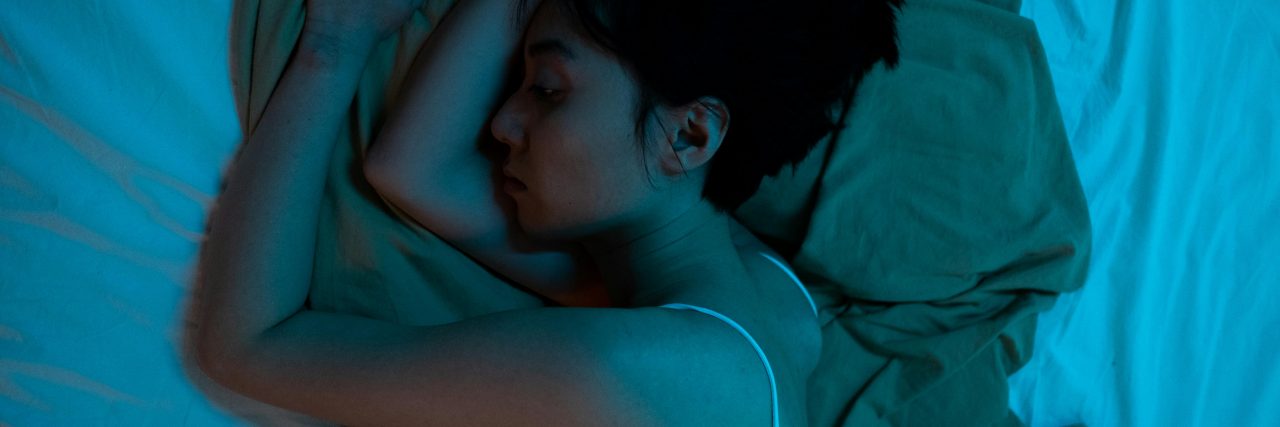What Is a Hypnic Headache? How to Treat an 'Alarm Clock Headache'
If you’ve ever been woken up in the middle of the night by a headache—like an internal alarm clock ringing in your skull—you might have experienced a hypnic headache. This rare and underdiagnosed type of headache can feel bizarre, painful, and deeply disruptive. And for people already dealing with migraines or chronic headaches, it’s one more frustrating twist in the story of pain.
Hypnic headaches only strike during sleep, usually at the same time each night. They’re sometimes called alarm clock headaches for this reason. While they’re not life-threatening, they are life-disrupting.
Key Features of Hypnic Headaches
According to the International Classification of Headache Disorders, a hypnic headache has the following characteristics:
-
Occurs only during sleep
-
Wakes you up, often at the same time every night
-
Lasts 15 minutes to 4 hours
-
Typically occurs 15 or more times per month
-
Not caused by another condition (like sleep apnea or brain lesions)
These headaches are most common in people over 50, but younger people can get them too. They affect women slightly more than men.
What Does a Hypnic Headache Feel Like?
The sensation varies, but most people describe it as:
-
Dull or throbbing pain
-
Occurs on both sides of the head (unlike many migraines)
-
Moderate intensity
-
Rarely comes with nausea, sensitivity to light, or aura
That said, some people do experience mild migraine-like symptoms. For people with migraines, it can be hard to tell the difference—especially when migraines themselves can be triggered by sleep disturbances.
How Is a Hypnic Headache Different from a Migraine?
| Feature | Hypnic Headache | Migraine |
|---|---|---|
| When It Occurs | Only during sleep | Any time, often with triggers |
| Wakes You Up? | Yes | Rarely |
| Pain Type | Dull, throbbing, bilateral | Pulsating, often one-sided |
| Duration | 15 minutes to 4 hours | 4 to 72 hours |
| Other Symptoms | Usually none | Nausea, aura, light sensitivity |
What Causes Hypnic Headaches?
The exact cause is still unclear, but theories include:
-
Changes in REM sleep cycles: These headaches often occur during REM sleep, when the brain is most active.
-
Melatonin imbalance: Since they happen at night, some researchers think melatonin (the sleep hormone) may play a role.
-
Age-related changes: Most cases occur in older adults, suggesting a possible link to aging brain structures.
It’s important to rule out secondary causes of nighttime headaches, including:
-
Sleep apnea
-
Brain tumors or lesions
-
Temporal arteritis
-
Nocturnal high blood pressure
Your doctor may order a brain scan or sleep study to rule these out before diagnosing hypnic headache.
How Are Hypnic Headaches Treated?
This is where things get weird—in the best way. The first-line treatment for hypnic headaches is… a cup of coffee.
Yes, really.
First-line treatments:
-
Caffeine before bed: 40–60 mg at night has been shown to prevent the headache without significantly disrupting sleep.
-
Indomethacin: A nonsteroidal anti-inflammatory that may prevent attacks when taken regularly at bedtime.
Other options:
-
Melatonin supplements (to regulate the sleep cycle)
-
Topiramate (used off-label in some cases)
-
Verapamil (a calcium channel blocker, sometimes effective)
Not all treatments work for everyone. It’s common to try several before finding the one that helps. Talk to a healthcare provider before trying any of the treatment options above.
Tips for Living with Hypnic Headaches
Being woken up night after night by head pain can wear on your mental and physical health. Here are some tips that may help:
1. Create a sleep routine.
-
Try to go to bed and wake up at the same time every day
-
Avoid screen time 1–2 hours before bed
-
Use blackout curtains and a white noise machine
2. Try caffeine strategically.
-
If recommended, take a small dose (like half a cup of coffee or a caffeine pill) before bed
-
Track how it affects your sleep and headache pattern
3. Rule out other conditions.
-
Work with a neurologist or headache specialist if accessible to you
-
Get a sleep study if you snore or feel groggy despite sleeping 8+ hours
-
Don’t dismiss new or changing symptoms—get them checked
You’re Not Imagining It
Hypnic headaches might sound like something out of a dream (or nightmare), but they’re very real. And while they’re rare, they’re not unheard of—especially in people already managing migraines or chronic head pain. The good news is that with proper diagnosis and some creative treatments (hello, bedtime espresso), many people find relief.
If you’re being woken up by headaches at night, bring it up with your doctor. You deserve rest.

